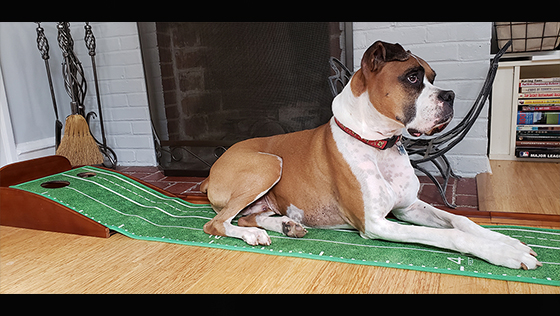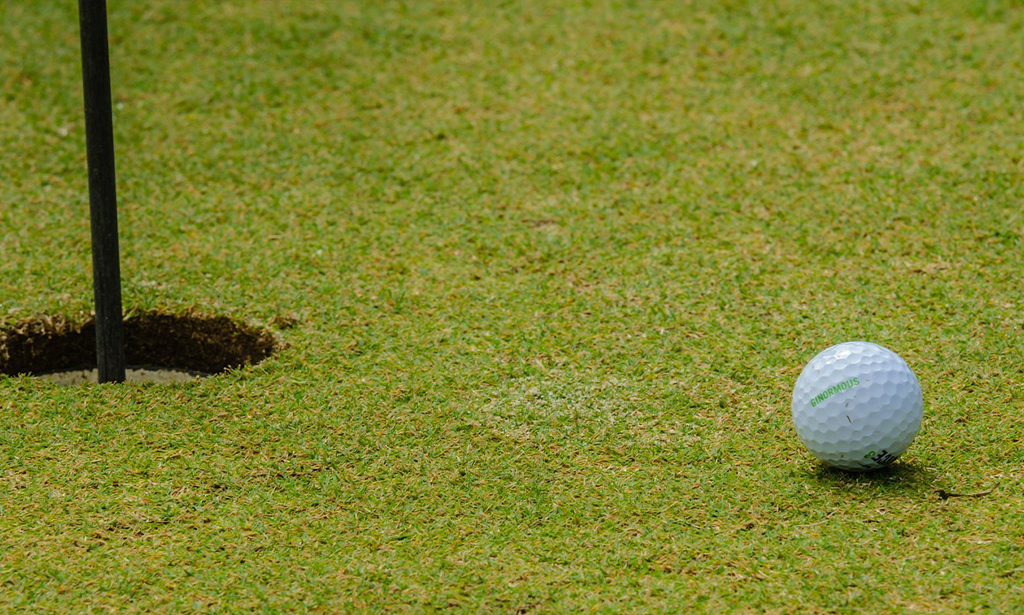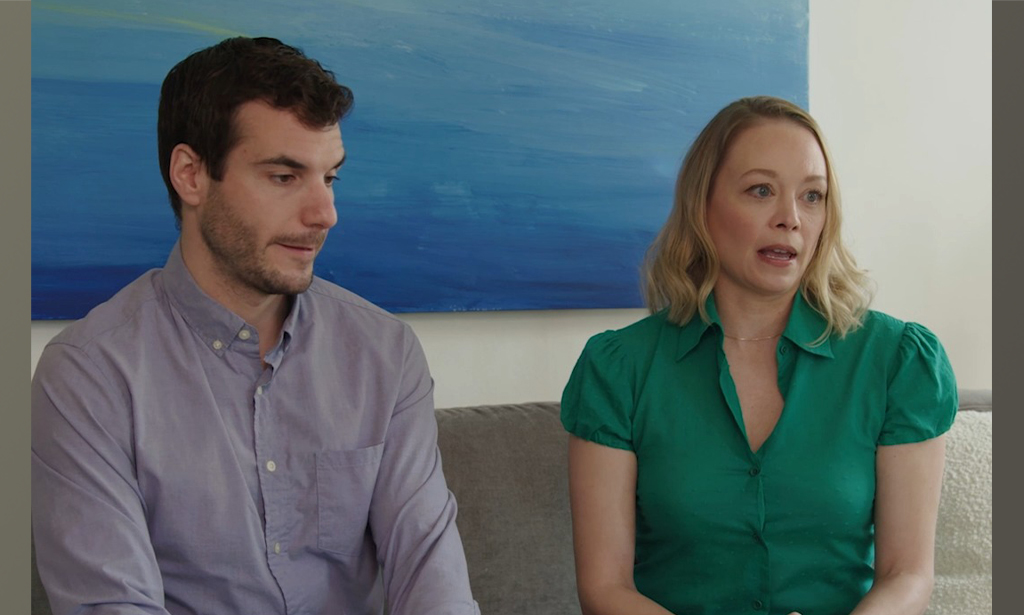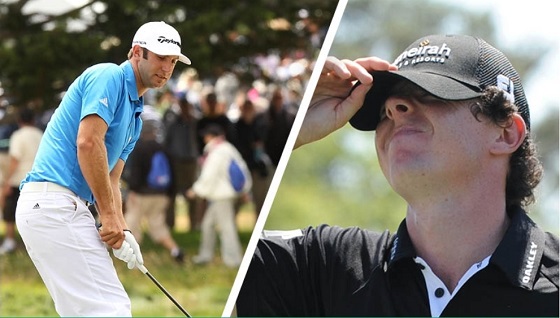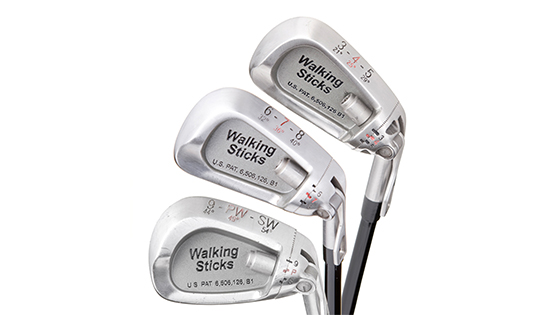Golf Hacks
Our 5 Tips for Getting Your Mental Game on Point
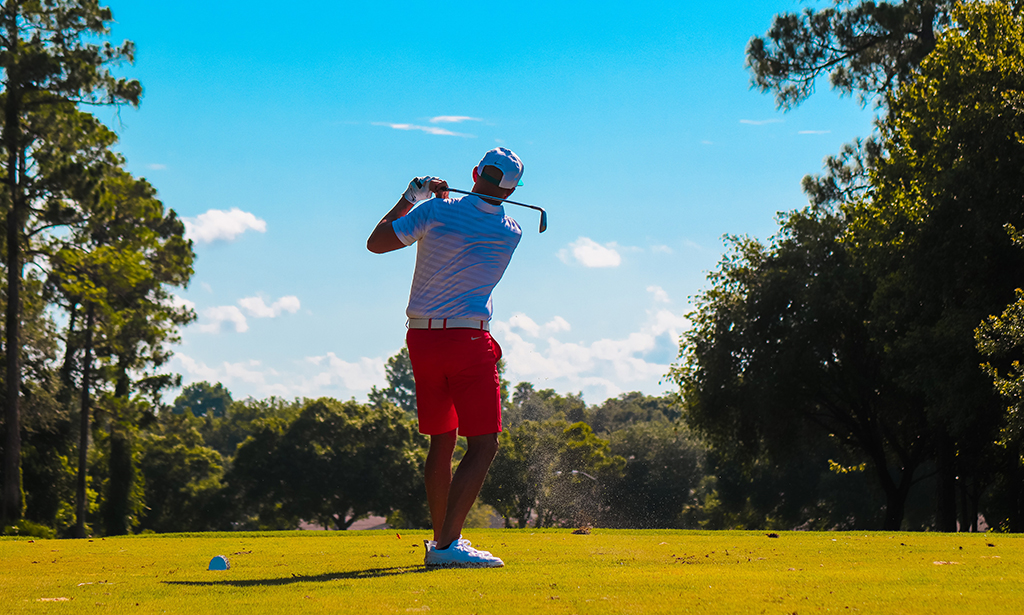
Getting consistently low scores necessitates the convergence of several factors. You’ll need to double-check your fundamentals, such as ball position for each club. You’ll also require the proper equipment for your game as well as a more intelligent strategy. The mental game, on the other hand, is one of the most critical factors that many players overlook. Improvements in this area can be among the simplest and most effective ways to boost performance. Here are five things you can start doing right now to improve your golf thinking.
Preparation
Make sure all of your critical elements for your game are ready the night before your round or golf match.
These tasks may seem insignificant, but if you wake up calmer and more relaxed because you’ve taken care of all of the above, you’ll have a better start to the day and, ideally, a better round of golf.
Music
According to studies, listening to inspiring music before sports and exercise boosts a positive mood state and improves overall performance. I’d suggest making a playlist that corresponds to the length of your automobile ride to the golf course. As you approach the club, increase the volume of the music and finish with your favorite song.
20 Minutes
Allow an extra 20 minutes (maybe set your alarm 20 minutes earlier) while planning your golf game the night before your round, especially if you have a long drive to the course. If you arrive early – wonderful! – you will have more time to prepare at the club, but if you are delayed by traffic, you will have more time to prepare at the club and will not feel rushed at the start of your game.
Structure Your Practice
Before you tee off, set up 30-40 minutes for practice. Use this time to conduct a physical warm-up, some simple golf stretch exercises, golf shots, and short game and putting work. Make this routine work for you by modifying it as needed and taking into account your club’s resources. If a golfer has not done a warm-up prior to their round, it takes an average of 5 holes to warm up. Consider how many strokes you could lose without a warm-up in those five holes, and then how many shots you could gain with that warm-up built in.
Reflect and Record
The 19th hole is frequently used by golfers to reflect on a round of golf. Reflective practice is a type of analysis, an evaluation process, and a method for making changes in practice. Documenting your round and reflecting on your play improves your self-awareness and comprehension of your own golf game and the areas where you may improve. There are numerous apps and golf technologies that can assist you in documenting your round, but why not start with simple facts on your score card? Number of Putts, Fairway Percentage, and Greens in Regulation Instead of focusing on the problems, this provides you something positive to talk about in the clubhouse with your teammates. When assessing your round in the 19th, attempt to talk about two positive aspects of your round before discussing one area for development the next time you play.
Read the original article on Golf Monthly.
Golf Hacks
Shave 10 Strokes Overnight with This Simple Trick!
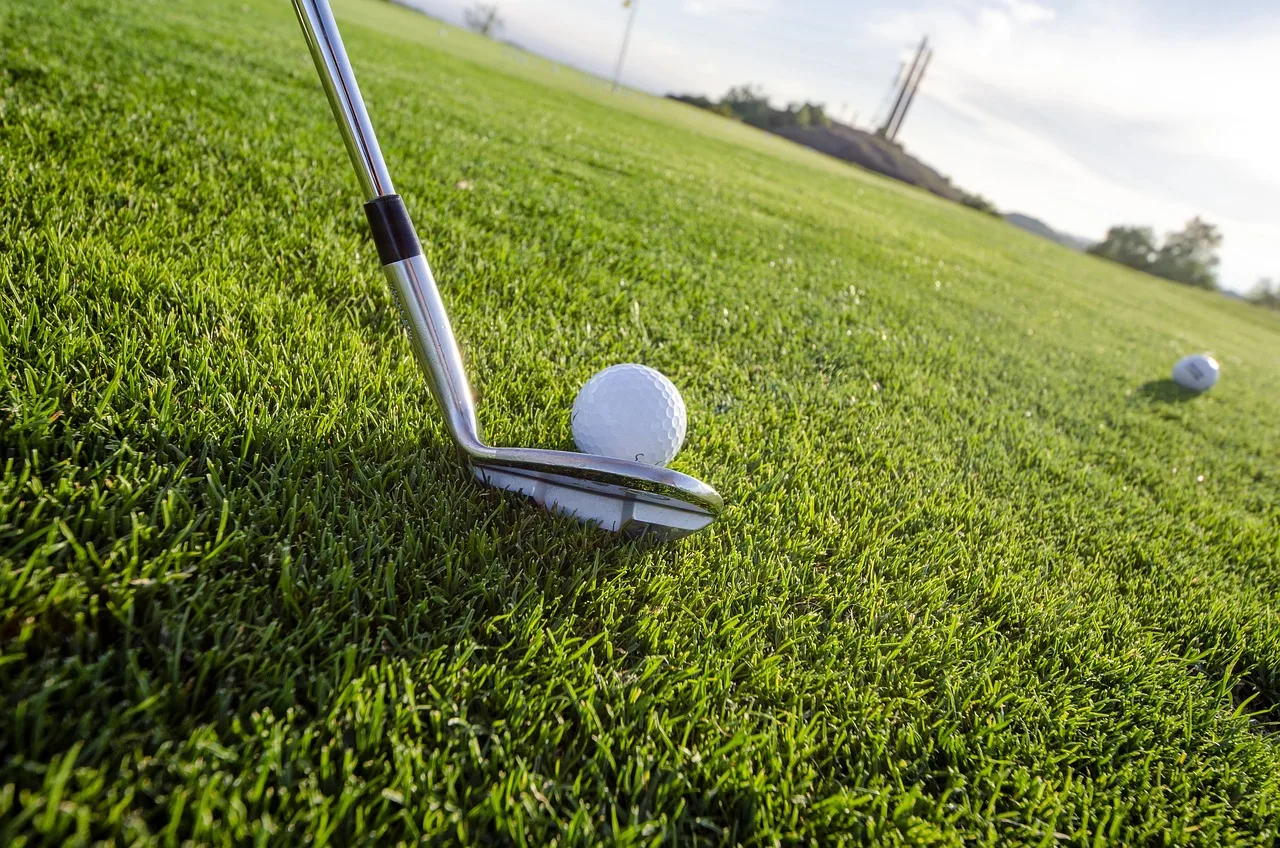
Attention golf enthusiasts! Are you tired of watching your golf balls plunge into water hazards or get lost in the rough? Have you spent countless dollars on the latest gear, only to see minimal improvement in your game? What if we told you that there’s a ridiculously simple hack that could revolutionize your game, and it’s something most players overlook?
Unlock the Secret Weapon of Golf Pros
While everyone else is obsessing over driving distances and the latest high-tech clubs, we’ve discovered the secret weapon that golf pros use to dominate the course: mastering the short game. Yes, you read that right. The key to dramatically improving your golf game lies not in the long drive but in the art of putting and chipping.
Why This Trick Is a Game Changer
Forget about complicated swing adjustments or expensive gadgets. By redirecting your focus to the short game, you can achieve astonishing improvements in your overall performance. Here’s why:
- Transform Your Scorecard: Putting can make up 40-50% of your total strokes. Imagine the impact on your score if you could putt like a pro!
- Boost Your Confidence: Excelling at chipping and putting builds a level of confidence that transforms your entire game.
- Save Strokes Like Never Before: Mastering your short game means you’re always just a chip and a putt away from par.
How to Leverage This Hack and Dominate the Greens
- Revolutionize Your Practice Sessions: Allocate at least 50% of your practice time to mastering the greens. It’s not just about hitting; it’s about hitting with purpose.
- Master Distance Control: Become a wizard of the greens by practicing putts from various distances. Your future self will thank you.
- Conquer All Lies: Practice chipping from every imaginable situation. When the pressure’s on, you’ll know exactly how to handle it.
- Mimic Real-Game Pressure: Challenge yourself with high-pressure putting and chipping scenarios. When it’s game time, you’ll be cool, calm, and collected.
The Shortcut to Golfing Greatness
If you’re seeking a foolproof way to elevate your golf game, look no further. This simple yet wildly effective focus shift is your shortcut to lower scores and higher bragging rights. So, are you ready to leave your golf buddies in awe? Embrace the short game mastery, and watch as your game transforms overnight. Say goodbye to double bogeys and hello to birdies and pars. Your golf game will never be the same again!
Golf Hacks
How a $1 Dry-Erase Marker Can Help You Perfect Your Iron Striking

Using a marker is an easy way to identify an issue you might have with lie angle
When it comes to club fitting, there are many small details that add up to gaining accuracy and distance, and one of the easiest ways to dial in your gear is to make sure you have the right lie angles with your irons and wedges.
But before we get to how to identify a possible issue with your golf club lie angles — let’s explain exactly what it is first.
What is Lie Angle?
Lie angle is the measured angle formed by the hosel/shaft relative to the ground when the head is at rest or when the grooves are parallel with the ground. The higher the lie angle value, the more “upright” the club is. The lower the lie angle, the more “flat” a club is.

If the lie angle of your clubs isn’t adjusted for your natural impact position, it will limit your ability to hit solid shots and create an unwanted bias in your ball flight.
If your irons are too flat for your swing, the face is naturally going to approach the ball open to the target line, and you will either miss shots to the right or notice your ball fading more than desired. Conversely, if your clubs are too upright, the club face will point more left and result in a pull, or shots that overdraw.
How to Check Your Lie Angles

You can do this test on a mat or on real grass.
Beyond the obvious ball flight issues that might be identified just by hitting shots, one of the easiest ways to make sure your lie angles are adjusted properly involves using a dry-erase marker (or any washable marker) and a few range balls.
The Process
Using the marker, draw a 1-inch line on a golf ball and set it down, pointing at the target line.
Once you’ve hit a shot and observed ball flight, take a look at the face or your iron to see where the line is pointing. If the ball traveled as intended and the line is 90 degrees to the grooves or just a hair in either direction, you’re golden.

Purple: great. Green line: too upright. Red line: too flat
If the line is pointed toward the toe, it means your lie angle is too upright and needs to be adjusted flatter. If the line is toward the heel, it means the clubs are too flat and need to be adjusted upright.
(Note: The marker line is NOT relative to the number of degrees the clubs have to be bent because it also represents the face angle at impact, which will exaggerate the marking. This is why it’s important to have a club-fitter do a final check before any adjustments are made, preferably with a launch monitor.)
You can repeat this process for all of your irons and wedges and use the marks as a guideline for adjusting your entire set. Just make sure to chart the information and ball flight before seeing a fitter, who can then individually adjust each club to fit your swing.
For many golfers, the ideal lie angle through their iron sets isn’t a linear progression, which is why the fitting process is crucial to making sure every club in your set is best matched to you.
Golf Drills/Practice
The 10 BEST Golf Drills Ever…
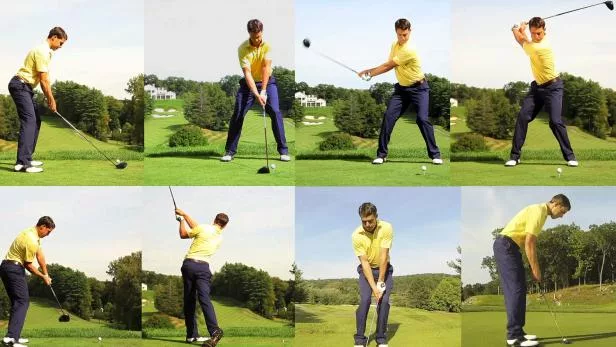
Tips on how to play better, the latest equipment reviews, interviews with the biggest names, and more… Check us out at ClickitGolf.com for more
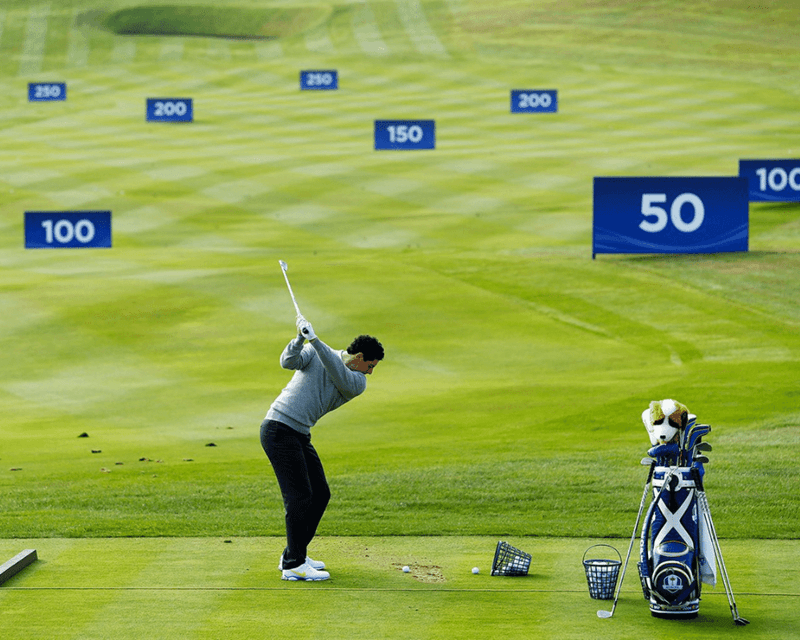
When it comes to golf, sadly there is no one magic solution that covers all common afflictions. We’re all different and therefore what has worked wonders for a member of your fourball is unlikely to do the same for you. So, in the article below, I run through 10 of my favorite drills in the hope that there will be something in there that will help the majority of golfers on their way to lower scores.
1. BEST GOLF DRILLS: BALL-STRIKING
Striking the ball consistently is king. The most important thing is knowing where you strike the ball on the clubface. To get a better idea, use a bit of dry shampoo (or hairspray) and spray it on the face. This will tell you if you are good at hitting the ball in the middle or if you tend to favor the heel or struggle with how to eliminate those dreaded toe strikes. Bottom line you will know your miss and can practice on better center of the face impact.
Using this feedback you can then start to identify swing issues and improve the quality and consistency of your shots.

2. SLICE FIX
So many golfers are desperate for a tip on how to stop slicing the ball and believe it or not, a simple swimming noodle can come in handy. This is because it will improve your understanding of the swing and help you figure out how to check your swing path. You move the club around the body in a semicircular movement, so place the noodle accordingly and take some swings – slowly at first so you can observe the path.
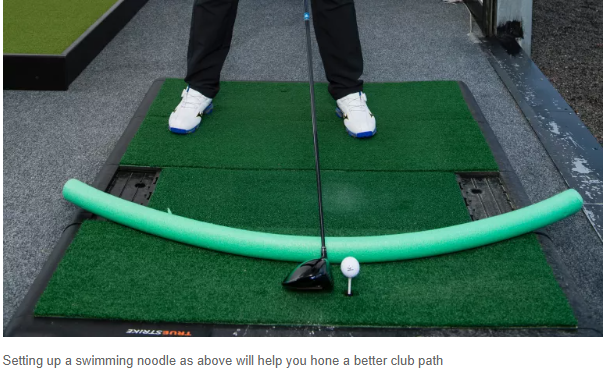
Feel how you move back in a circle. At the bottom, the club is moving down and coming through impact, before going on around in that circle to the finish. Using this drill should improve your directional control, get your clubface more toward the target and start to produce more solid strikes.
3. RHYTHM
Many club golfers get diagnosed with a swing that is too fast when it’s really the order in which they change the direction that needs correcting. We want to get a feel for the rotation of the body, almost setting the club at the top and then having a smooth change of direction.
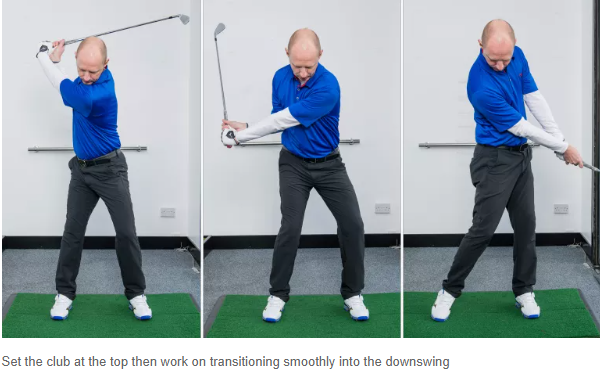
Take your set-up and feel like you make a really nice shoulder turn, rotating 90 degrees from your start position so your left shoulder is pointing down towards the ball. Then set the arms and wrists, so they take the club to the top of the swing.
Finally, you want a smooth rotation of the lower body, with the lead hip and leg starting to rotate. Avoid making a little turn and a big jerky snatch from the top. Get used to this feeling and the three distinct checkpoints and you’ll notice you start to hone a much better downswing sequence
4. BUNKER DRILL
This is a must-try drill that will improve your understanding of how to play bunker shots and how the club should interact with the sand. When practicing, having an image to look at will help, so draw a box in the sand to form a small rectangle around the ball. Your goal is to remove the sand inside the box. The box gives you a visual of where you want the club to enter before throwing the sand out toward the target.
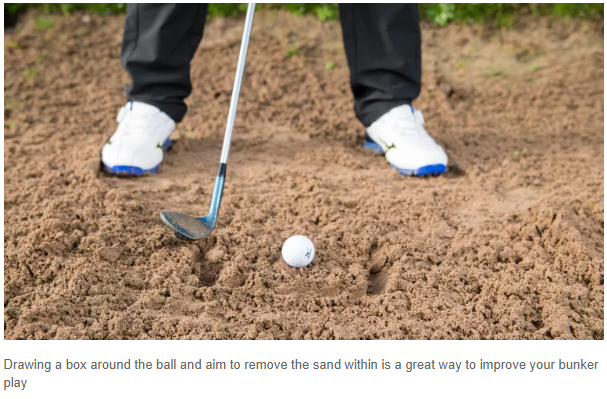
Take your set-up with the ball a fraction forward of the center and a little more pressure on your lead side. Then, open the clubface slightly so you start to use the sole in a more efficient way to prevent the leading edge from digging into the sand, which slows momentum.
Take a big swing and let your right-hand work down and underneath, so the sand is thrown out nice and high and the ball comes out toward the target.
5. STRIKE THE MATCH
You won’t get the desired result with your long irons without the correct speed through impact. But it’s not all about swinging as fast as you can. Learning how to compress the golf ball is far more important. As the club comes into impact, imagine yourself striking a match, imagine that same sound.

A sharp sound through impact means you’ve generated good speed, and crucially, at the right moment. This will help you improve the launch, control and increase the distance you hit your irons.
6. TEE PEG DRILL
The is a difference between pitching and chipping, so before working on your short game, it pays to improve your understanding. Designed to help your pitching, this drill is especially useful in getting rid of that nasty habit where the leading edge of the club digs down too much, one reason for those dreaded duff (chunk) shots.

Instead, tee the ball up, take your normal set-up position, and rehearse a few swings, visualizing just clipping the ball up and away off the tee. A shallower angle of attack will allow the sole of the club and the bounce angle to do the work. Breaking the tee is a no-no, as this means that the leading edge of your club is digging down.
7. HYBRID DRILL
Even though the best golf hybrids are designed to be easy to hit, there’s a tendency for club golfers to get too shallow and try to “lift” the ball instead of compressing it flush. In fact, you need more of a downward impact, which is where this drill will help. Place a coin two or three inches in front of the ball and play your shot as you would do normally. If you miss the coin, it’s because the sole of the club is traveling upwards too soon – the likely result is a thin contact and a dreaded skull or skinny shot.
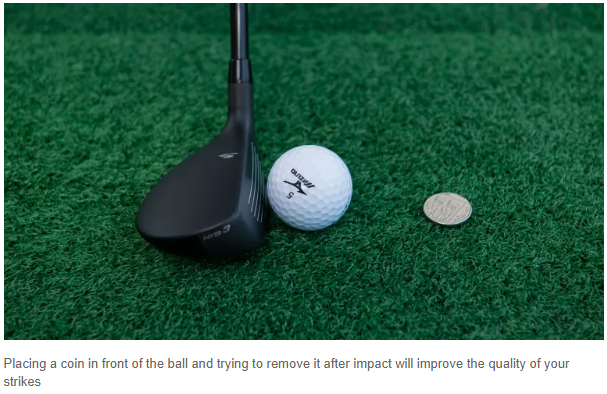
You want to hit the coin, as this tells you that you have the correct downward angle of attack. This will lead to ad more pure and consistent strikes, which is going to give you added distance too.
8. PUTTING DRILL
You could be the best player in the world at reading greens, but if you don’t start the ball on the right lines, the putts simply won’t drop. This is why clubface alignment at impact is so crucial. In a bid to improve in this area, many people turn to their putting technique, but the answer is often much simpler.
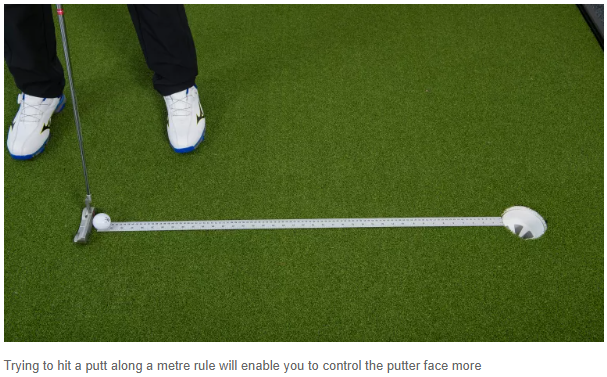
The task here is clear: hit the ball along the yardstick into the hole. This is one of my favorite putting drills that will help you to square the clubface at impact on a more consistent basis while giving you visual feedback as to whether you’re pushing putts by opening the face or pulling them by closing it.
In both cases, the ball will roll along the yardstick or whatever flat surface you chose. If your speed is right, you’ll find the bottom of the cup.
9. FACE CONTROL
You can practice this at home to improve your awareness of how the clubface is affected by the way you hold the club. Attach a pencil to the center of your clubface with Blu Tack, as shown. You will be surprised at where you are aimed vs. where you think you are aimed!
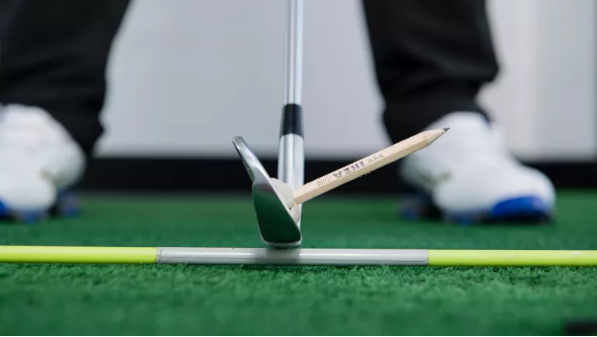
At address, the pencil should cover the alignment stick. From here, you’ll get an understanding of where your clubface is during the backswing and whether you tend to open it (pencil up), close it (pencil down), or keep it fairly neutral (pencil straight).
A strong golf grip with lots of knuckles showing on the top hand will encourage more of a closed clubface when you take the club back; a weak golf grip will see the pencil pointing more toward the sky. Work on presenting the club back to the target without any twisting or manipulation.
10. FIXING THAT DREADED TOP
Topping often comes as a result of trying to hit up on the ball. It’s a common fault in which you see the elbows separating and the wrists then acting to save the shot. If you’re guilty of this and want a drill on how to stop topping the golf ball, you’ve come to the right place. First, apply the resistance band as shown.

What I’m having to do is fight the resistance pulling my arms back toward my body. It helps you get used to the feeling of your arms extending as you go out and down toward the ball.
After a few swings, remove the band and you should find it’s far easier to get your arms extended. Brush the ground with the sole and get that ‘whoosh’ sound (One of my favorite sounds on the planet). This will tell you that you’re extending your arms more and your chances of topping the ball will be greatly reduced.
IMPORTANT: Practice these individually. You don’t want to be bogged down by too many swing thoughts. We all know what happens with paralysis by analysis…At your next range session pick one that applies to your game and focus solely on the drill. Pay no mind to immediate results – it’s the 10,000 hours theory – it will not happen overnight. But, if you perfect each of these drills, and really practice them individually and with intent/purpose…you can and will reap the benefits. Once you feel comfortable, take some of these to the course and watch your scores creep down slowly but surely.
-

 Product Review5 years ago
Product Review5 years agoThe Perfect Practice Putting Mat Review by Jason Tenzer
-

 Blog3 years ago
Blog3 years agoLoophole Rule Offers PGA Tour Pros a Mulligan
-

 Blog3 years ago
Blog3 years ago2021 Buyer’s Guide: The Top 10 Value Golf Balls For Distance & Feel
-

 Blog3 years ago
Blog3 years agoGolf Marriage Counselor
-

 Blog5 years ago
Blog5 years ago9 Biggest Chokes Of The Past Decade
-

 Product Review5 years ago
Product Review5 years agoTHE ADJUSTABLE IRONS: WALKING STICKS GOLF CLUBS
-

 Blog3 years ago
Blog3 years agoWhat Your Golf Clubs Say About You
-

 Equipment5 years ago
Equipment5 years agoOHK Sports Interview by Jason Tenzer




















